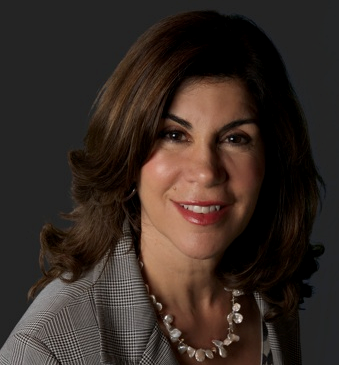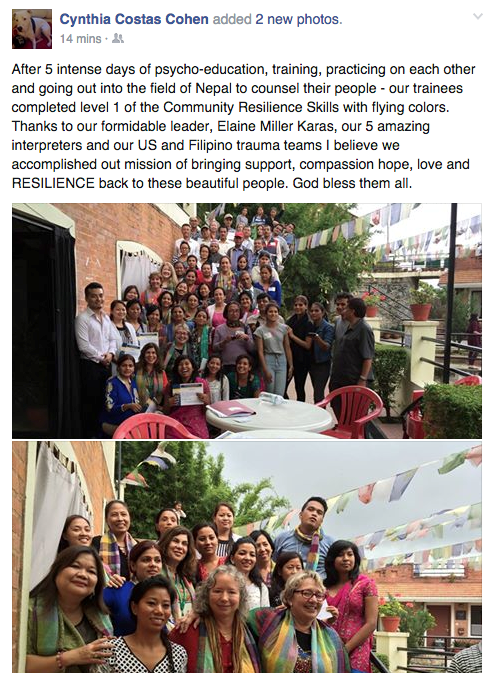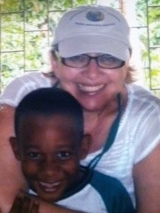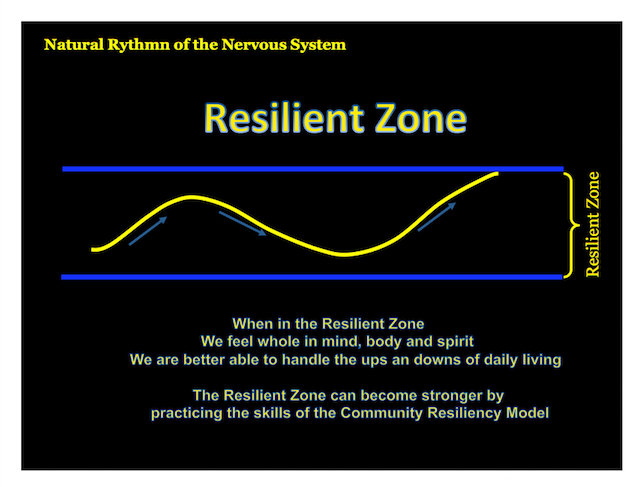 |
| Cynthia Costas Cohen (Trauma Resource Institute ()) |
Cynthia Costas Cohen comes from a medical family in Chicago. Cynthia's curious mind has led her down a winding academic path, exposing her to medicine, psychology, copyright law, troubled youth counseling and ultimately to her current ipseity as a popular author. While still in high school she worked as a surgical assistant in the Blood Flow lab of Northwestern Memorial Hospital. She studied pre-med in Colorado and while earning her masters in Clinical Psychology in Los Angeles, worked as a copyright expert for some of the city's most important litigators. During this time she also volunteered at a juvenile detention center outside of Malibu.
Cynthia is a psycho-therapist and a trained EMDR: a trauma therapist and authorized practitioner of TRM (trauma resiliency model). As a writer, Cynthia is perhaps best known as co-author of the New York Times bestseller, "The 7-Day Energy Surge".
Cynthia is one of those people whom everyone seems to love. She has an amazing smile that lights up the room, warms your heart and makes you feel special. Qualities like these, as well as her background in clinical psychology make Cynthia a valued partner of the Traumatic Resource Institute (TRI). Their mission is "to create capacity in communities all around the world in biological based interventions that help restore the nervous system after highly traumatic and stressful events." One of these events was this year's devastating earthquake in Nepal in late April. With a magnitude between 7.8 and 8.1, the temblor completely destroyed 5,000 schools and killed over 8,000 people while injuring almost 17,000. It wiped out countless homes, devastated communities and lay to ruin ancient temples and infrastructure.
 |
| Guatemala Training (Starfish Impact) |
Just before the TRI team left for Nepal, MY HERO spoke with its co-founder and executive director Elaine Miller-Karas about Cynthia.
Elaine told MH: "Cynthia came to one of our trainings. Cynthia is one of those treasures of the planet. She's an amazing healer who became more involved with us and came on one of our trips that we did in Guatemala working with indigenous Mayan girls and I think she really saw the power of our model in other countries and I asked her then to be on our board of directors and she accepted. So now she's not only been to Guatemala but she's been to the Philippines with me and now is part of our Nepal trip. She's a very important part of our organization now and actually President of our Board of Directors."
MY HERO caught up with Cynthia just after she returned to Los Angeles from her mission in Nepal:
MH: Your work with the Trauma Resource Institute is so inspiring. Going to the front lines of disasters to help with post-traumatic stress. Where did this very special work begin for you?
"Actually, the TRAUMA RESOURCE INSTITUTE (TRI) was created by my colleague and mentor, Elaine Miller-Karas. After going with her to Guatemala twice to help young girls deal with the poverty, incest, sexual, physical and mental abuse from living in this very patriarchal society, she asked me to be President of the board of the Trauma Resource Institute. When I saw these young girls learn how to regulate their nervous systems, smile and laugh again and in the process, become more resilient, I was unable to say no. Since then I have been to the Philippines after Typhoon Yolanda, where over 10,000 people died and, just recently, Nepal where 2 massive earthquakes decimated parts of Kathmandu and nearby villages."
 |
| Cynthia working in Nepal after earthquake (Cynthia Costas Cohen) |
MH: Would you say that most of the focus is on children?
"We do not focus on children but of course they are a priority as their nervous systems cannot handle stress easily, which affects how their brain is shaped. Teaching parents is crucial for the children as well. A parent's affect is like the weather to us so it's critical that parents have skill to calm their fears, worries and stress."
MH: Do you feel it is important to train the first responders in their own countries?
"Yes. That is why we have developed the Community Resilience Model that focuses on teaching not just therapists and social workers, but teachers, religious leaders and community volunteers. In most disaster areas outside of the US there are not enough therapists and social workers to go around so we must train lay people. It really works wonderfully when we train the people of that country. They can then go into the communities hit hard by the trauma, to help their people - whether it's a natural disaster, war or years of poverty and oppression."
MH: What role does culture play in the process of dealing with stress and trauma in faraway lands?
"We try to be aware and informed of the cultural and religious ways of the people but in the end, we are strangers who will leave them to return to their lives."
 |
| Elaine Miller-Karas and friend (TRI) |
MH: Is there a list of things that you could share for people coping with post-traumatic stress situations? Any thoughts of how they can move forward?
"Yes, they must first know that whatever reactions they are having (PTSD symptoms) are absolutely normal. And it is not a sign of weakness but of human biology. And that the brain and body do know how to reset to lower activation if you can practice certain skill sets. For example, when we work with people who are fearful, anxious, cannot sleep or eat, cannot relax... We ask them for a resource: a person, place or thing that, when they think about it, brings them a sense of peace or relief. So when they start recalling a place like Grandma's house... sitting in her garden... hearing her cooking and singing in the kitchen, smelling the food cook and the fragrance of the flowers... you can visually start to see that person visibly relax, smile, take a deep breath and when you ask them to notice the pleasant sensations that go along with this memory, their body starts to release some of the stress. It takes them back to a time of safety and the brain starts to reset itself with this new image."
MH: You have met some amazing people around the world. Who is your hero and why?
"Right now my hero is Elaine Miller-Karas. After we got back from Nepal, we were so drained. The jet lag was horrible and she got back in a plane a week later and is now in Turkey teaching community leaders and activists who work in the Syrian refugee camps, how to help the children and people who have lost everything and feel no hope for the future. She is truly an amazing philanthropist and loves helping others."
 |
| Resilient Zone (I Chill App) |
MH: Could you tell us about your commitment to the MY HERO Project and why it is important?
"I have always loved The MY HERO Project started by my childhood friend, Jeanne Meyers. Although I do not have kids, I do have grandchildren via my husband Larry and having healthy role models for them in this day and age is so difficult. MY HERO provides a wonderful and fun avenue for kids to write, film and share their heroes from all over the world. It's also a great way for kids to experience the culture of other people."
MH: Do you feel that the power of storytelling to inspire and educate is a track that needs to be explored more in our schools?
"Absolutely! Very often I am asked to speak publicly and teach about wellness - specifically skills to deal with stress. Through these talks, the most successful ones were the ones where I used other people's stories as examples. People just love stories and it's not just for kids."
MH: If you had the attention of the world for 5 minutes what would you do or say?
"If you are stressed or afraid, do not isolate. Reach out to others, as human connection is what we are all wired to do. Ground your body to a surface like a chair, wall or bed and think of good times, people who love you... positive things in your life, either now or from the past. Think of who is helping you now and how you have lived through difficult times in the past. We are all resilient creatures who just need to get out of our heads full of worry and let our bodies do what they know how to do - heal."
MH: Do you have a quote that inspires you?
"I have many quotes that I love but lately this one is speaking loudly to me as so many people seem noncommittal in their lives and relationships then complain that nothing good is happening for them so here it goes.
"Don't wait for your ship to come in. Row out to meet it." Anonymous
Thank you Cynthia, for the very important work you are doing on the planet. At a time when there seems to be so much chaos, from natural disasters to the ravages of war and oppression. it's comforting to know that there are real-life heroes like you and Elaine Miller-Karas helping victims of trauma all over the world. You're an inspiration to us all and we look forward to sharing your story and the stories of hope and resiliency you are co-creating with TRI and its partners on the front lines of trauma.
Please check out the links below to see how you can get involved and/or ask for help.
Page created on 7/31/2015 12:00:00 AM
Last edited 1/7/2020 3:48:14 PM
